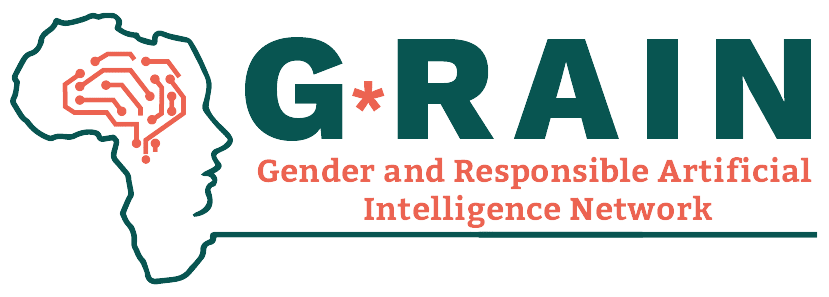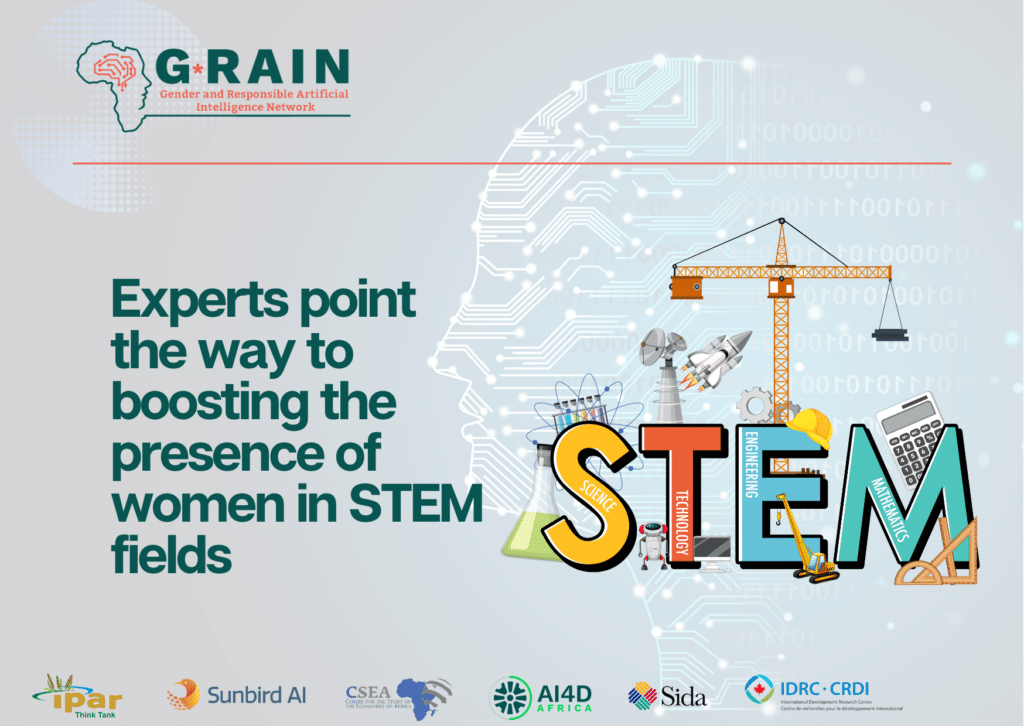In an ever-changing world, STEMs (Science, Technology, Engineering and Mathematics) play a crucial role in technological development and innovation. Unfortunately, women remain under-represented in these fields.
In a virtual debate organized by GRAIN Network (Gender and Responsible Artificial Intelligence Network), female experts invited to the discussion shared challenges to be overcome as well as recommendations to help highlight women’s achievements in STEM to inspire more young women to engage in these fields.
The debate featured Ms Maimouna Leye Diakhaté, President of SENUM (Synergie pour l’Éducation au Numérique et aux Médias) in Senegal; Dr Juliet Moso, Senior Lecturer at Dedan Kimathi University of Technology in Kenya; and Marwa Cheikh-Youssef, President of HACK&PITCH in Morocco.
Moderated by Dr. Ndeye Fatou CISSE, gender expert at IPAR Think Tank, a member of the GRAIN project consortium, the experts discussed the difficulties hindering the development of women in STEM. These obstacles are often linked, among other things, to the low presence and promotion of girls in science and technology at grassroots level, gender stereotypes, a lack of infrastructure and funding, the low presence of women in the job market linked to science, poverty in rural areas, socio-cultural constraints that prevent girls from attending school at an advanced level, the non-adaptation of programs and training for rural women, and the inadequacy of policies for the inclusion of girls,
However, according to Maïmouna Leye Diakhaté, President of SENUM (Synergy for Digital and Media Education in Senegal), “STEMS is often perceived as a discipline intended exclusively for educated women in the scientific streams, whereas there are many uneducated women or women in the literary streams who have successfully converted to STEM careers.
Digital expert Ms. Diakhaté shared the example of her career path as a literary scholar who has now moved into the STEM field.
Morocco’s Marwa Cheikh-Youssef, for her part, offers short intensive programs for women, adapting the training to their daily lives, their level of study and their social reality.
Dr Juliet Moso, Senior Lecturer at the Dedan Kimathi University of Technology, opts for a grassroots approach, exposing children to technology in a supervised way to counter gender bias and stereotypes.
In addition, she believes that teachers and parents need to be oriented and exposed to STEM so that they are aware of the benefits.
Recommendations
The debate highlighted a range of recommendations aimed at strengthening the presence of women in scientific fields, especially technology.
The experts proposed, among other things, a reduction in gender inequalities in access to the job market to better address the challenges faced by women in STEM professions; the implementation of inclusion strategies and the adaptation of STEM programs to women’s gender realities; the adoption of a policy capable of ensuring gender balance between boys and girls for the equitable participation of men and women in STEM professions; a deconstruction of the belief that STEM is for science majors; the adoption of more inclusive targeting strategies in advocacy and promotion programs for girls in STEM fields, so as to attract women with a literary background or a high level of education.
For these specialists, it is necessary to raise awareness from an early age, to promote role models through conferences, mentoring, funding and infrastructures such as scholarships, but also to combat gender stereotypes.
Not that long ago, people lived and functioned in tight communities. Every vendor knew their customers personally and could make...
This Machine Learning Glossary aims to briefly introduce the most important Machine Learning terms - both for the commercially and...




